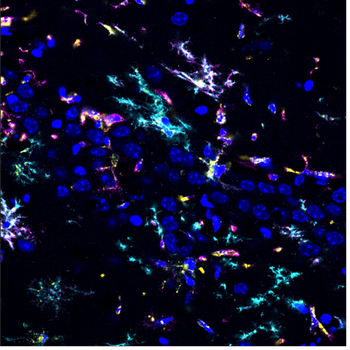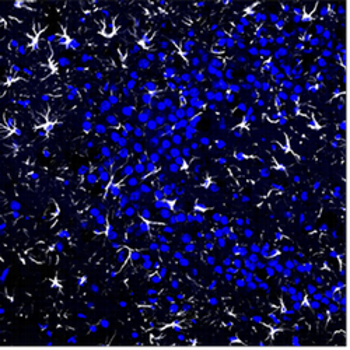Research
We examine how neural and immune cells function within the neuroimmune system, using cellular and molecular approaches to explore neuroprotection against viral entry at the blood-brain barrier, recruitment of peripheral immune cells to promote virologic clearance and recovery, and how systemic inflammatory processes trigger neuroinflammatory processes that impact the maintenance of neuronal networks. For the latter, we use in vivo models of viral infections that we have pioneered to demonstrate how virus-driven innate immune responses within forebrain circuitry induce cognitive deficits.
Our Focus
We investigate how neural and immune cells interact within the central nervous system. Our research aims to understand:
- Neuroprotection: How the brain defends itself against viral entry, particularly at the blood-brain barrier.
- Immune Response: How immune cells are recruited to clear viruses and aid in recovery.
- Neuroinflammation: How systemic inflammation can trigger brain inflammation, affecting neuronal networks and cognitive functions.
The goal of our research program is to define neuroimmune mechanisms, therapeutic targets and neuroimaging biomarkers of virus-induced memory disorders.
Innovative Research Methods
Our lab employs advanced techniques to uncover these processes, including:
- Genetic and Pharmacologic Approaches: To manipulate and understand specific pathways.
- Next-Generation Sequencing: For detailed genetic analysis.
- Interactome Profiling OMICs: To map interactions within the neuroimmune system.
- Behavioral Testing and Functional Connectivity Mapping: To study the impact of infections on behaviour using touchscreen technology and advanced imaging technologies like magnetic resonance imaging (fMRI) and positron emission technology (PET)-MRI to explore brain activity.











